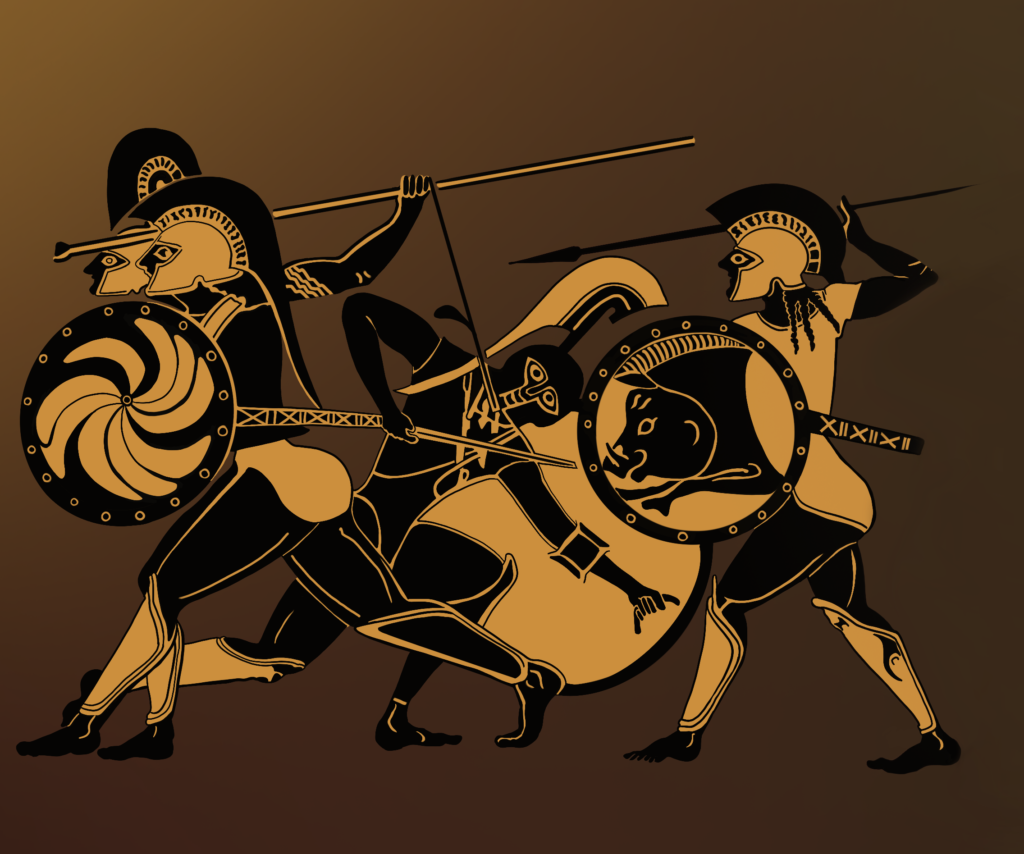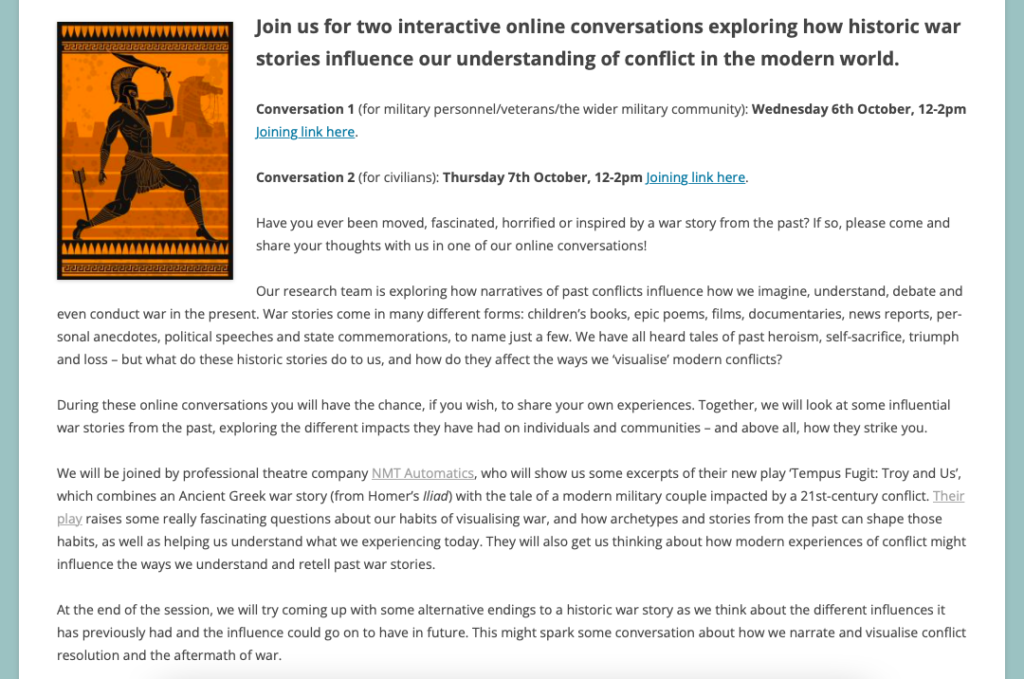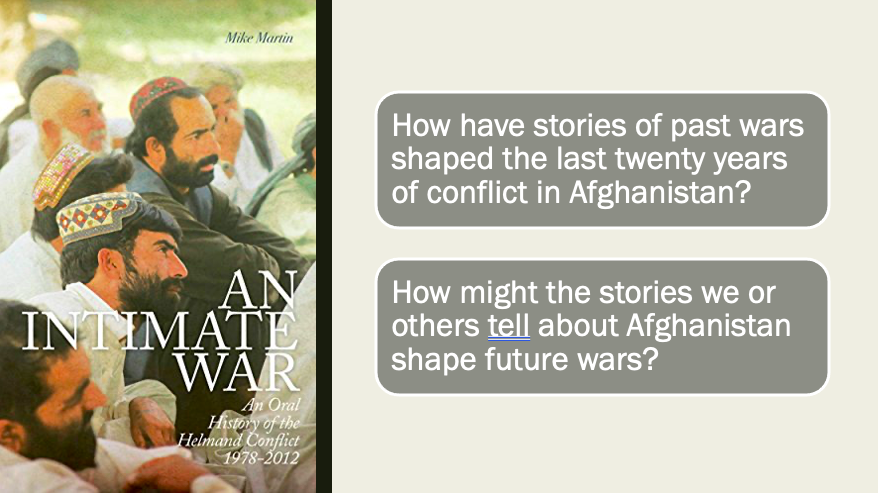From Achilles to Afghanistan

In 2017, University of St Andrews staff Alice König and Nicolas Wiater founded the Visualising War project. Working from antiquity to the present day, they explore the ways in which war stories in different media have influenced each other across space and time, shaping wider cultural discourses. They are particularly interested in the feedback-loop between narrative and reality, whereby war stories not only reflect but also affect how people think, feel and behave in military contexts. This research has important real-world applications: in studying past and present war stories, we can raise awareness of the powerful ideologies which they generate over time, which influence people directly but can also be purposefully leveraged by those in positions of social or political power. We can also build capacity in individuals and groups to harness narratives of war to help prevent or mitigate against the effects of future conflict.
‘War is a topic of perennial importance to people from all sectors of all societies, and battle narratives play a major role – in many different forms – in shaping and mediating responses to war. Think of Homer’s Iliad, the histories of Livy, the Bayeux Tapestry, Shakespeare’s history plays, Tolstoy’s War and Peace, Picasso’s Guernica, Shostakovich’s Stalingrad Symphony and Francis Ford Coppola’s Apocalypse Now – to name just a few. At first glance these representations of war are all strikingly different. Whether we are conscious of it or not, however, they have long been interacting with each other – in different ways, and to different extents – in artists’, authors’, viewers’ and listeners’ minds, adjusting the ways in which war is visualised and canonising broader ideas about (e.g.) gender, leadership, self-sacrifice, nationhood and conflict-resolution.
The aim of our project is to foreground these interactions and explore their impacts. In a nutshell, our project asks: how do war stories from different media, communities and historical periods both shape and differentiate themselves from each other? How do their interactions reflect and shape broader attitudes to war? And how do the attitudes and ideologies which they generate influence the ways in which people think, feel and behave in their day-to-day lives?’
https://arts.st-andrews.ac.uk/visualising-war/about-the-project/
In 2021, Alice König ran a series of public workshops with civilians and military professionals/veterans, to explore how historic war stories influence our understanding of conflict in the modern world. Entitled ‘From Achilles to Afghanistan: historic war stories and modern conflict‘, they involved a professional theatre company who have experience adapting ancient myths for modern audiences. The workshop leaders and participants talked through a range of ancient narratives – factual and fictional, textual and visual – that have been popular and influential in later times, from Homer’s Iliad to Trajan’s column. They also discussed the power of modern retellings of ancient myths. And the workshop ended with participants taking charge of the storytelling themselves, discussing how they might rewrite an ancient event or story for a modern audience, how the story would end, what their goals would be, and what impact their new versions of old tales might have.

One aim was to raise awareness about the ongoing influence of antiquity, which continues to mediate how we understand, imagine, experience and narrate many unrelated conflicts and military behaviours all around the world today. Another was to draw attention to the power and responsibility that we all have as storytellers to shape how war is visualised in the future. A third aim was to shine a spotlight on how we narrate (or ignore) conflict resolution: what attention do ancient historical or fictional narratives play to war’s aftermath and peace-building, and what can that teach us in the modern world? The interactive story-writing element of the workshop pulled all these threads together, helping participants to imagine future audiences as well as to unpick the habits of visualising war and peace which different ancient events and narratives can perpetuate – or help to question, disrupt, expand. Along the way, we talked about a range of adaptations of ancient war stories, from Company of Wolves’ play Achilles to Pat Barker’s The Silence of the Girls. These are themselves examples of ‘Applied Classics’, using ancient myths to raise important questions about (e.g.) ideas of heroism and attitudes to sexual violence today.

You can find out more about the Visualising War and Peace project by visiting its website.